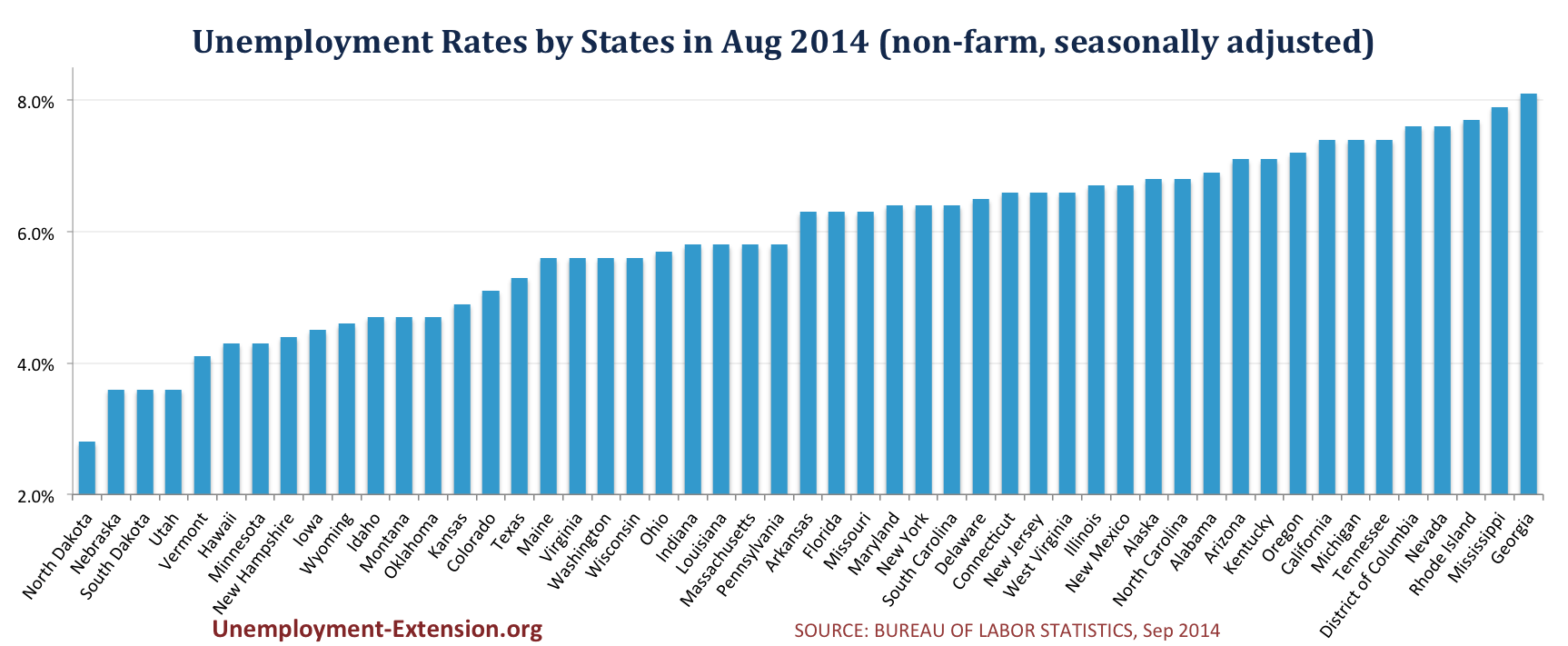Unemployment Edges Upward in Majority of the US with No Extended Benefits in Sight
By Unemployment-Extension.org | September 23, 2014 at 10:19 PM |
Unemployment rates have slowly inched upwards in 20 states, based on the latest data released by the U.S. Bureau of Labor Statistics. South Carolina, Maryland and Ohio had the largest job losses. Meanwhile, Mississippi currently holds the record for the highest unemployment rate in the country, at 8 percent.

Approximately 3 million workers across the country have lost their long-term unemployment benefits following the lapse of emergency unemployment insurance in December 2013. This year, twelve federal bills were introduced into legislation that, if passed, would have continued the federal unemployment extension program. The amount of time for which extended unemployment benefits would have been extended ranged from three months up to as much as two years.

Among the most recent legislation introduced was H.R. 3979, which was passed by the Senate in April 2014. Contained in that legislation was a five-month extension that would have been retroactive from the end of December 2013 and lasted until the end of May 2014. In order for the bill to become effective, it would need to be approved by the House of Representatives and then signed by the President. Unfortunately, there has been no activity on that bill to date.
Congress remained in recess for five weeks during the summer, only returning earlier this month. While lawmakers are finally back in session, there has still be no word that they are considering extending jobless benefits for the long-term unemployed. Many lawmakers have steadfastly continued to oppose the idea of extending unemployment benefits, pointing out the improving economy. Others have gone so far as to argue that extended jobless benefits could result in prolonged unemployment for jobless workers.
Since Congress has returned from their summer recess, there has been much discussion regarding whether consideration will be given to H.R. 3979 and extended unemployment benefits will finally be made available.
No action has been taken as of yet and recent data released by the U.S. Census Bureau has not helped the situation. According to the Census Bureau, the poverty rate in the United States declined to 14.5 percent last year, showing .5 percent year-over-year decrease. The Census Bureau went on to conclude that the declining poverty rate is a result of a decreasing unemployment rate and recovering economy. Furthermore, according to the report issued by the Census Bureau, year-round full-time employment is currently more attainable than in the past.

Despite fears among some lawmakers that extending unemployment benefits could actually prolong the amount of time that the jobless stay unemployed, a Federal Reserve Board paper points out that this is not the case. The paper points out that the extension of unemployment benefits both during as well as after the Great Recession had almost no effect in terms of boosting the unemployment rate, according to The Wall Street Journal. The jobless rate in the United States has declined from a high in October 2009 of 10 percent to 6.1 percent in August 2014.
Federal Lawmakers Continue Wrangling Over Unemployment Extensions.Controversial New Study Questions the Validity of US Unemployment Rate.
More News
*IMPORTANT: Be sure to check with your State for details on your full eligibility requirements, or to begin the voluntary benefits process.
